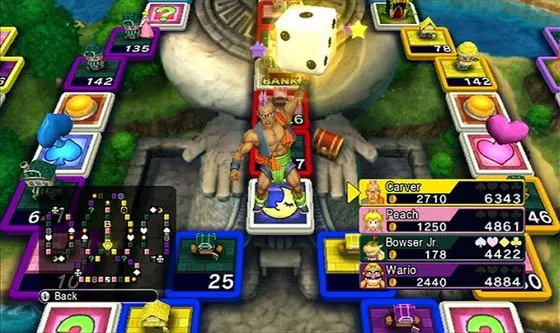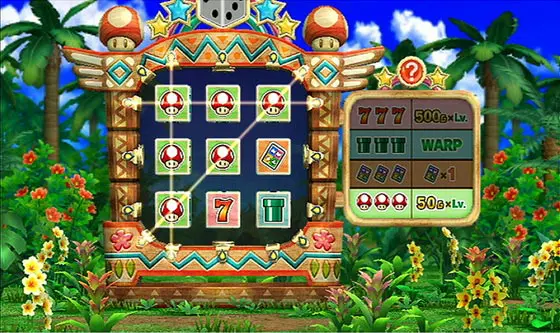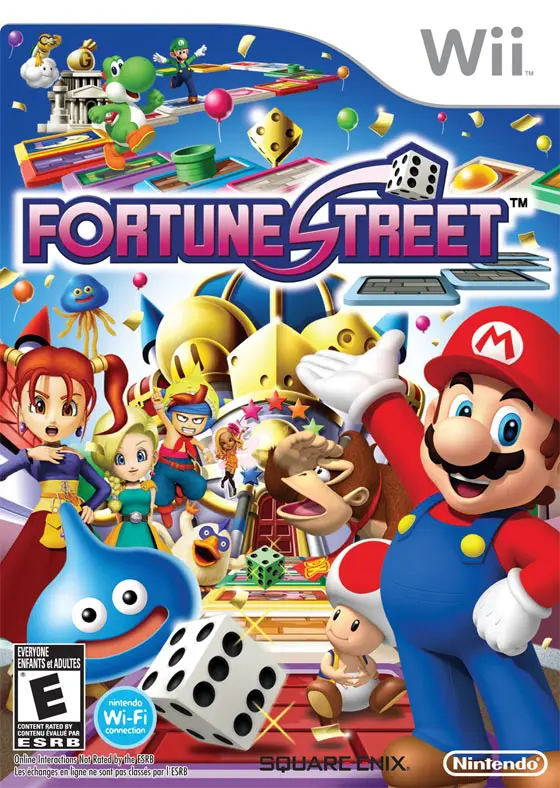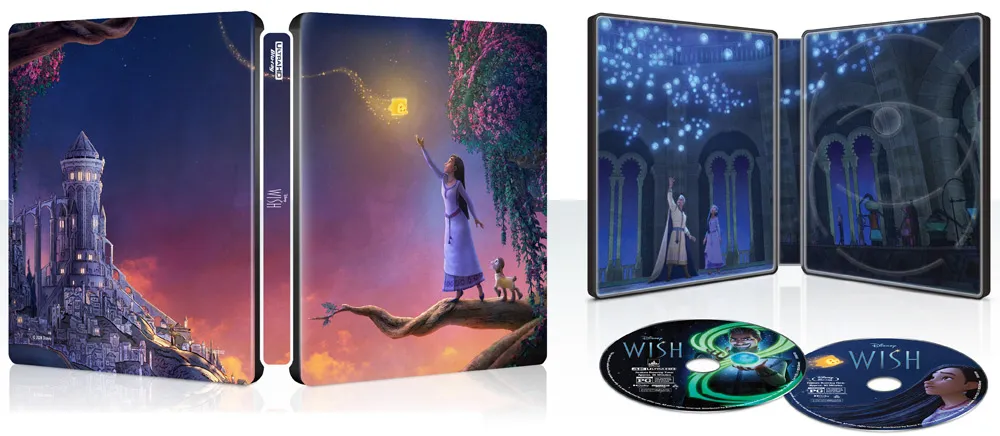 There’s been an awful lot of talk lately about the 99%, and Wall Street, and unscrupulous CEOs, and recessions. People are out of work. People are hungry. People are mad.
There’s been an awful lot of talk lately about the 99%, and Wall Street, and unscrupulous CEOs, and recessions. People are out of work. People are hungry. People are mad.
But this isn’t an op/ed piece about the financial world; this is a review of the newest Wii exclusive game by Nintendo, aptly called Fortune Street.
Fortune Street is an Americanized version of the popular Itadaki Street games that are the brainchild of Dragon Quest creator Yuji Horii. Itadaki Street has been a hit in Japan since its inception in 1991, and finally, with Fortune Street, American Nintendo fans can discover why it is so popular.
The game features characters from the Mario universe, as well as characters from Mr. Horii’s Dragon Quest designed by the great Akira Toriyama. The dialogue for each character is game-line specific, so the Dragon Quest Blue Slime speaks in classic “goo puns,” while Bowser really hates Italian plumbers and lets you know it.
In Fortune Street, you roll a virtual die and move around various game boards based on the Mario and DQ universes. Your goal is to buy up properties and then renovate them into high value assets, so when other players land on them, they will have to pay you large sums of money to keep playing.

I know it sounds like another popular board game that deals with real estate, but honestly, that is where the comparisons end.
Fortune Street utilizes not the “street” but the buildings on the block. You don’t buy Park Place, you buy a flower shop on Park Place (as an example). And instead of players paying rent, they buy the services of that flower shop. If the flower shop has been renovated, it could turn into a huge mall-like mega store, and the prices will be higher.
There is no “building” houses – and later hotels – on your properties. Instead, Fortune Street brings a stock market element into the game.
The properties are grouped together in districts. You and up to three other players can buy stock in each district whether you own a property in the district or not, and then your fortunes rise and fall by how business is handled on those properties. You can buy a property, then an entire district, and then invest all you have into that district. To truly get ahead, you need to diversify just like in real life.
Each game is set with a financial goal. To win the game, you must be the first player to reach the goal AND get back to the bank. There are also other elements, such as “arcade-like” mini-games that reward you cash, stock, or other goodies, and a collectible card suit objective that replaces the standard “Pass Go, Collect $200.”
To get paid, you must collect one of each suit (think card games: Spade, Heart, Diamond, Club) and then go to the bank to collect your salary. Each time you collect a set and hit the bank, your salary rises. You also get bonuses based on property ownership and stock options. As you can see, there are plenty of ways to make money.

Fortune Street has both a single player and multi-player game mode. For single player, the CPU controls the other three players, as there will always be four players in the game.
You can save and quit a game only during a solo campaign, which doesn’t make a whole lot of sense, as the games last two to four hours. Having the option to save either game mode should have been included. Either way, it’s probably good to carve out two hours to get a full game in.
And speaking of the length of play, you can go into the options and turn off all dialogue and adjust the speed of the die rolls and moving around the board to ridiculous speeds.
The downside here is that you cannot see what your opponents are doing as their transactions happen in a blur. It becomes hard to discern what districts they are buying stock in, or how much they are renovating properties. It helps to know what you are up against when your financial life is tied to the roll of a die.

There is also an “easy” option that turns off the stock market element and focuses only on property buying and renovation. The financial goal is also adjusted to reflect the loss of revenue streams from buying and selling stocks.
As you play more full games of Fortune Street, you gain tokens that can be used to buy new outfits, decorations, titles (also known as “roles” and “personalities,” which can effect game play in good ways) and the even ability to use your Mii in the game. You can customize your gameplay to suit your style and you can also unlock new boards and additional characters to use while playing.
Fortune Street is an amazingly fun game. The stock market elements separate it from that “other” game, and the use of beloved Mario and Dragon Quest characters is charming and makes for a great experience. Also, it can be played by children and families, and can serve to teach finance and how the stock market works, all in a fun, “non-Occupy-Fortune-Street” way.
Shop for Fortune Street on Wii for a discounted price at Amazon.com (December 5, 2011 release date).



